Juho Pohjalainen's Blog: Pankarp, page 2
September 7, 2021
Redemption doesn't feel so hot anymore
Used to be I could love it when a bad guy turned good. A long meaningful character arc where they realize what a terrible person they've been, and set forth to turn a new leaf. The worse they'd been before, the better it could be.
Nowadays... I don't really feel it anymore. I can no longer believe in it. Because in the internet, everybody is terrible.
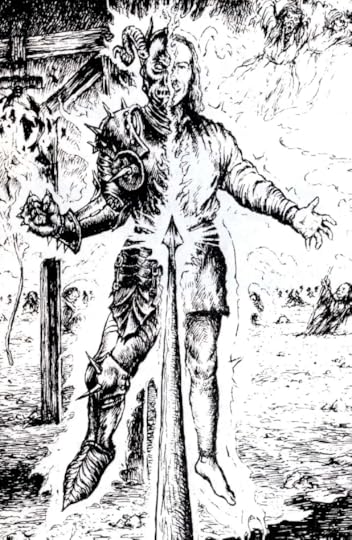
Ideologies worn on their sleeves and taken to the absolute extreme: everyone burying themselves into bunkers covered in spikes, absolutely refusing to budge, yet ready to fling rocks and bombs at other, equally immoveable, bunkers. Even the nominally "good" people - the ones preaching for love and tolerance and progress, loving the tales where evil is peacefully redeemed - frothing at their mouths as they rage at other people, shouting and screaming and wishing for bodily harm... absolutely blind to the irony of it. Even the slightest disagreement can spark a row... or even if the two people actually fully agree, but one of them expresses themselves poorly. People that could otherwise be best of friends, driven at each other's throats. Everyone everywhere is always ready to pick a fight and to have a go at it, never realizing how there's nothing to be won or no one that can be convinced.
And in the off-chance someone does in fact put their past behind them and becomes a better person, someone is always ready to dig up their sordid history and get a good lynch mob going. No redemption is allowed to stand.
No one comes across as any good or pure in this: all faith in humanity, crumbling away like ancient ruins to desert winds. Bloody festering rifts forming between all peoples of mankind, out of nothing and for no reason. I've watched it grow increasingly worse for years now. It's asinine.

Clearly we need to tone down our expectations.
For this year's NaNoWriMo, I will write an Enemy Mine situation where a bunch of Good Guys and Bad Guys, usually at each other's throats, are forced to work together to survive in the face of a far greater foe. They learn to appreciate each other better by the end of it, some of them become friends, and everyone gets a character arc and grows as a person... but no one is redeemed. The bad guys are at the end of it still as bad as at the start - possibly even worse, with their character growth only making them more efficient villains.
The takeaway here will not be a great moral or ideological one, but rather simply learning to coexist. Learning to tolerate people even when you disagree with them on some heavy subjects. Learning to cooperate with them for a common cause. Learning to be polite even when you think someone's a terrible person.
Because you have to share this world with these people whether you like it or not, and nothing you say to them is likely to convince them out of their ideals, especially not if you're being a dick about it. The heroes of this story do the whole internet fight thing at the beginning, and nearly get killed for their efforts. After that they learn better.
Of course, the two or so people likely to read the story will already know this lesson, so it's rather preaching to the choir. But at least I can vent a little.
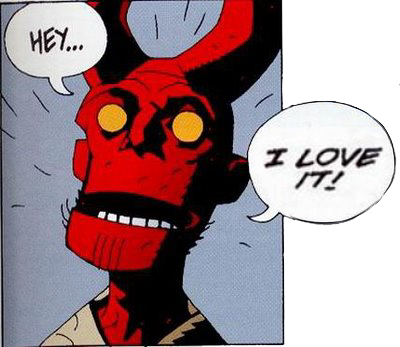
Nowadays... I don't really feel it anymore. I can no longer believe in it. Because in the internet, everybody is terrible.

Ideologies worn on their sleeves and taken to the absolute extreme: everyone burying themselves into bunkers covered in spikes, absolutely refusing to budge, yet ready to fling rocks and bombs at other, equally immoveable, bunkers. Even the nominally "good" people - the ones preaching for love and tolerance and progress, loving the tales where evil is peacefully redeemed - frothing at their mouths as they rage at other people, shouting and screaming and wishing for bodily harm... absolutely blind to the irony of it. Even the slightest disagreement can spark a row... or even if the two people actually fully agree, but one of them expresses themselves poorly. People that could otherwise be best of friends, driven at each other's throats. Everyone everywhere is always ready to pick a fight and to have a go at it, never realizing how there's nothing to be won or no one that can be convinced.
And in the off-chance someone does in fact put their past behind them and becomes a better person, someone is always ready to dig up their sordid history and get a good lynch mob going. No redemption is allowed to stand.
No one comes across as any good or pure in this: all faith in humanity, crumbling away like ancient ruins to desert winds. Bloody festering rifts forming between all peoples of mankind, out of nothing and for no reason. I've watched it grow increasingly worse for years now. It's asinine.

Clearly we need to tone down our expectations.
For this year's NaNoWriMo, I will write an Enemy Mine situation where a bunch of Good Guys and Bad Guys, usually at each other's throats, are forced to work together to survive in the face of a far greater foe. They learn to appreciate each other better by the end of it, some of them become friends, and everyone gets a character arc and grows as a person... but no one is redeemed. The bad guys are at the end of it still as bad as at the start - possibly even worse, with their character growth only making them more efficient villains.
The takeaway here will not be a great moral or ideological one, but rather simply learning to coexist. Learning to tolerate people even when you disagree with them on some heavy subjects. Learning to cooperate with them for a common cause. Learning to be polite even when you think someone's a terrible person.
Because you have to share this world with these people whether you like it or not, and nothing you say to them is likely to convince them out of their ideals, especially not if you're being a dick about it. The heroes of this story do the whole internet fight thing at the beginning, and nearly get killed for their efforts. After that they learn better.
Of course, the two or so people likely to read the story will already know this lesson, so it's rather preaching to the choir. But at least I can vent a little.

Published on September 07, 2021 14:49
•
Tags:
chaos, coexistence, darth-vader, evil, fighting-fantasy, good, hatred, hellboy, internet, law, moral-relativism, nanowrimo, national-novel-writing-month, pamcakes, prejudice, redemption, star-wars-infinities, voivod
June 27, 2021
Moons
Even in fantasy settings far removed from our world, if you look up to the sky, it's going to look much the same as ours: there's the stars, and there's our old friend the moon. There's no need to change this because it's not the focus - the focus is down below, on the people and their struggles. But as in everything, there are exceptions.

Two moons is pretty popular in fantasy, for a good reason. It makes things of the world and its standing far more clear: as soon as you look up, you realize we're not in Kansas anymore. Instantly you get the feeling that this is quite a bit farther removed from our own world. That things are going to be different here. A good author will capitalize on this: you can't just have the second moon hover there and do nothing, you have to make it mean something, do stuff. If nothing else, the setting's people will have worked their mythology around it.
Pictured above is the Warhammer world's dreaded Morrslieb: whenever it's full, things are going to get weird indeed. Another example is Masser and Secunda from the video game series The Elder Scrolls: they're actually the sundered decaying corpse of a dead god, the first and most obvious sign of the trippy, drug-fueled, absolutely friggin' bonkers nature of the entire setting. Final Fantasy IV and Beast Wars each have two moons, and reveal great things about the second one. The setting of Warcraft has a second moon, except then it didn't, and now it does again. The setting of the musical project Bal-Sagoth mentions a couple times a third moon that fell from the heavens, meaning there's probably still two up there. It comes up a lot... even if not all of them take full advantage of it.
You can get the same thing across with just one moon, by making that one moon a little bit weird and fantastic - in a meaningful way, of course - but two moons makes for a very nice fantastic imagery that's hard to beat. You can also add more, but it tends to have diminishing returns: Dragonlance gets away with three, but it really binds them to its magic system in a way that really makes it impossible to have any less, but Eberron's twelve moons, while tying up a bit to its theme of thirteen-minus-one, is just excessive. At the opposite end there's the moon of Forgotten Realms, Selûne, which just has a few glittering comets following it around: enough for just a bit of imagery while not taking too much of our time, subtle and very nice.
The weirder you get with your night sky, the more it kidnaps the reader's attention, drawing focus out of the earthly matters where it should be. But if you do not properly tie up all the other moons and stuff into the world, it just comes across as gratuitous and overcompensating - it's a wasted effort you'd have been better off to put elsewhere. It's very hard to marry both with a good middleground.
But that's all fantasy. In science fiction, it's a whole other story: the eye can be drawn to the stars all the time, because the protagonists often actually go up there. They get to visit all sorts of weird constellations and gas giants and moons and what have you. The focus is up in the skies, so the skies should reflect this - if not in the main character's own boring-ass homeworld, then elsewhere.
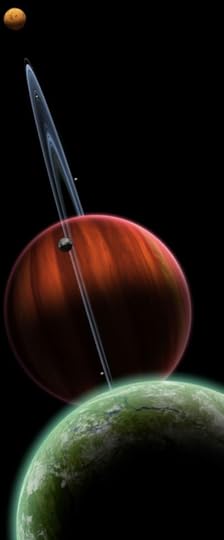
My own setting not only has half a dozen moons to it - it is a moon, in itself, all of them orbiting around the same gas giant, making for a real lightshow up there. The stories seem just straight-up fantasy at first, but gradually, more scientific matters come up, rockets and lasers and trips to the stars... and the night sky is an early clue of this. To set the true score of things from the very beginning, if you look at it the right way and think the same way I do.
The protagonist Peal is very small by any measure of things, and yet he has his entire world to look after. But whenever he looks up to the sky, he realizes - his beat is pretty small too. There's so much more out there, so many greater and more important matters, interplanetary and interstellar and galactic affairs some people are saddled with. All in all things could be worse for him. He's got this.

Two moons is pretty popular in fantasy, for a good reason. It makes things of the world and its standing far more clear: as soon as you look up, you realize we're not in Kansas anymore. Instantly you get the feeling that this is quite a bit farther removed from our own world. That things are going to be different here. A good author will capitalize on this: you can't just have the second moon hover there and do nothing, you have to make it mean something, do stuff. If nothing else, the setting's people will have worked their mythology around it.
Pictured above is the Warhammer world's dreaded Morrslieb: whenever it's full, things are going to get weird indeed. Another example is Masser and Secunda from the video game series The Elder Scrolls: they're actually the sundered decaying corpse of a dead god, the first and most obvious sign of the trippy, drug-fueled, absolutely friggin' bonkers nature of the entire setting. Final Fantasy IV and Beast Wars each have two moons, and reveal great things about the second one. The setting of Warcraft has a second moon, except then it didn't, and now it does again. The setting of the musical project Bal-Sagoth mentions a couple times a third moon that fell from the heavens, meaning there's probably still two up there. It comes up a lot... even if not all of them take full advantage of it.
You can get the same thing across with just one moon, by making that one moon a little bit weird and fantastic - in a meaningful way, of course - but two moons makes for a very nice fantastic imagery that's hard to beat. You can also add more, but it tends to have diminishing returns: Dragonlance gets away with three, but it really binds them to its magic system in a way that really makes it impossible to have any less, but Eberron's twelve moons, while tying up a bit to its theme of thirteen-minus-one, is just excessive. At the opposite end there's the moon of Forgotten Realms, Selûne, which just has a few glittering comets following it around: enough for just a bit of imagery while not taking too much of our time, subtle and very nice.
The weirder you get with your night sky, the more it kidnaps the reader's attention, drawing focus out of the earthly matters where it should be. But if you do not properly tie up all the other moons and stuff into the world, it just comes across as gratuitous and overcompensating - it's a wasted effort you'd have been better off to put elsewhere. It's very hard to marry both with a good middleground.
But that's all fantasy. In science fiction, it's a whole other story: the eye can be drawn to the stars all the time, because the protagonists often actually go up there. They get to visit all sorts of weird constellations and gas giants and moons and what have you. The focus is up in the skies, so the skies should reflect this - if not in the main character's own boring-ass homeworld, then elsewhere.

My own setting not only has half a dozen moons to it - it is a moon, in itself, all of them orbiting around the same gas giant, making for a real lightshow up there. The stories seem just straight-up fantasy at first, but gradually, more scientific matters come up, rockets and lasers and trips to the stars... and the night sky is an early clue of this. To set the true score of things from the very beginning, if you look at it the right way and think the same way I do.
The protagonist Peal is very small by any measure of things, and yet he has his entire world to look after. But whenever he looks up to the sky, he realizes - his beat is pretty small too. There's so much more out there, so many greater and more important matters, interplanetary and interstellar and galactic affairs some people are saddled with. All in all things could be worse for him. He's got this.
Published on June 27, 2021 05:02
•
Tags:
bal-sagoth, dragonlance, fantasy, fantasy-worlds, final-fantasy, forgotten-realms, moon, moons, night-sky, science-fiction, setting-musings, settings, shala, sky, the-elder-scrolls, warcraft, warhammer
May 14, 2021
More on "evil races"
These past couple days I've been gunning down a lot of Nazis... but unlike when I was a kid, my heart's not really in it anymore.
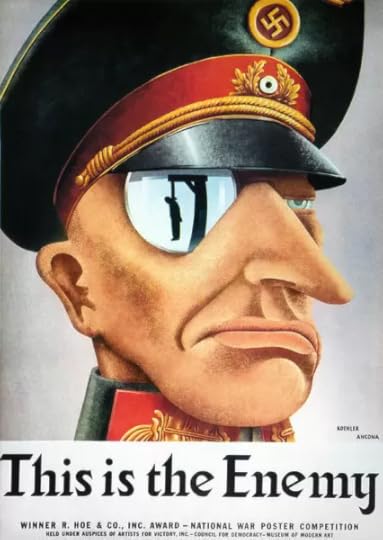
They're supposed to be the closest the human race has to demons from hell - you should be able to mow them down in dozens and not feel a twinge of regret. But I just can't. What's going on?
Reflecting on it, I'm pretty sure that Humankind: A Hopeful History is to blame. It taught me more about the essential kindness of our species, the love and compassion and hope that lies in the core of even the war and other atrocities we commit. More specifically, it pointed out that even the German soldiers in WW2 fought not for the Nazi ideology, nor against the French and Americans and other enemies, but simply for the love they felt to their fellow soldiers. And I now feel that they do it even in video games - such as Wolfenstein, which I've been playing - and that even though the game gives me no other choice but to kill or be killed, I feel pretty bad doing it now.
Does this mean I can no longer enjoy a lighthearted action romp, videogame shoot-'em-ups or Indiana Jones movies? That you'd have to either establish the enemy as humongous dickbags beyond the uniform they wear (show them gun down civilians, or at least sneer at the main hero), or take the whole thing as a black comedy? Or else be forced to accept the moral greys of things, and not being able to just feel good about an evil being defeated? Perhaps it's not so bad, anyway: all of those options would almost-invariably be deeper and more satisfying than just turning your brain off for a while.
Or you could instead use your brain in finding justification. Make it work.
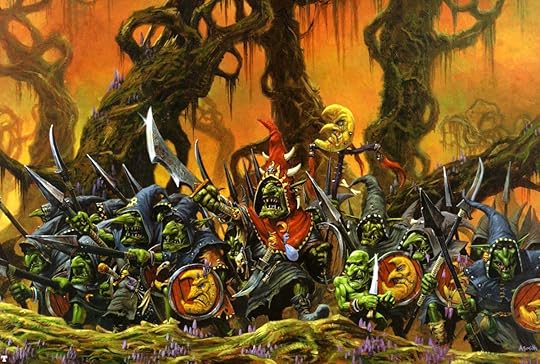
Great many fantasy enthusiasts in these past couple years have started to reject the notion of evil races entirely. I've written on the subject before myself, both on the nature of evil, and on races such as orcs and their ilk: I like nonhuman races that are inherently alien to us, rather than just humans with some green paint and tusks; and I don't like to throw the word "evil" around lightly. If I am now to create a race that would qualify as most definitely evil, then it'd be more an exception than a rule for me, perhaps just a mental exercise rather than something I'd legitimately write about. But I'm thinking about it now, so here we go.
Looking back at the Humankind book, it's been made apparent that us humans are actually pretty nice folk when you get down to it. We don't like to kill each other; we instinctively jump to the help of one another when we're in trouble; we like to make friends and be social, and more often than not, try to do the right thing. The book calls it "Homo Puppy".
Creating an "evil" race would therefore be a simple matter: just remove this puppiness.
The members of this race don't particularly care to help anyone, even one another. They're not here to make friends and have no problem with killing. No moral compunctions get in the way of their selfish desires and actions. By the standards of humans, they could each of them be diagnosed as sociopaths.
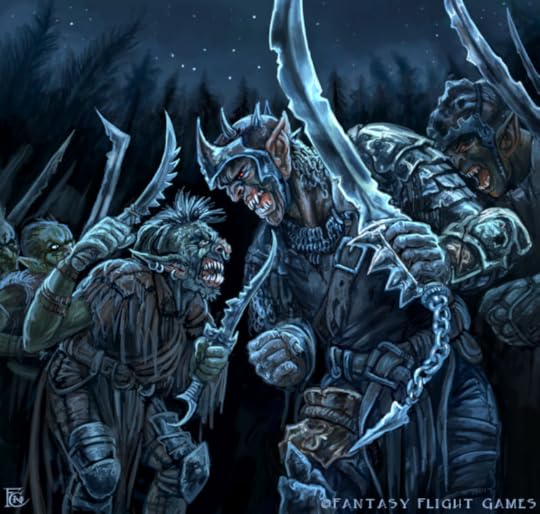
How would they survive, then? By breeding like rabbits and growing fast. This will have the added benefit of them always coming in swarms, giving the heroic badass protagonist plenty to cut down in gory action scenes.
And how did they come to be in the first place? They don't seem the type to thrive by cooperation: rather, evolution (or some warrior-god) would have come up with them as an extreme illustration of the ideal of Survival of the Fittest: plenty of them are spat out into the world, but only the strongest, the toughest, or the most cunning of them ever survive to continue their bloodline. Strongly individualistic, looking to do things on their own and shun aid whenever possible: clever, self-sufficient, and very fast learners - those that weren't, would never make it to adulthood.
If any of them manage to make it out alive of your heroic massacre, you best beware: they'll learn from their mistakes and come back so much stronger and cleverer. Always confirm kills.
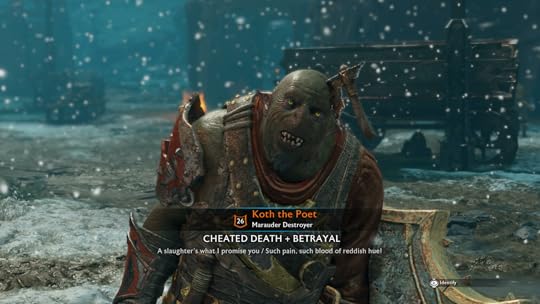
Yet for all of this... if you are the type that would like some moral greys and diplomacy in your stories, none of this still precludes making friends with a few. If met in peacetime, they might enjoy your company on an intellectual level, not rush into killing you - look for alternatives - even help you out in a pinch if there's something to it for them. Golden Rule is rooted less in compassion, far more in greater long-term payoff - they could most definitely understand it, and help people in return for assistance to themselves. Just that they'd be rather more mercenary about it.
But even so, the world would most assuredly be better off without them. So don't feel bad if you need to kill a bunch in a war. They're like double-nazis that way.
...Say. A lot of modern research suggests that neanderthals were quite smart and inventive individually, but had very little instinct in sharing their discoveries or helping each other out in general. The Humankind book above compared them to powerful modern computers, while humans were older and slower machines but with a working WiFi. That's got a lot in common with what I just went on about.
Were neanderthals the real-world orcs? Were they all killed off because they were a bunch of evil conquering psychos, possibly in the service of a dark lord?
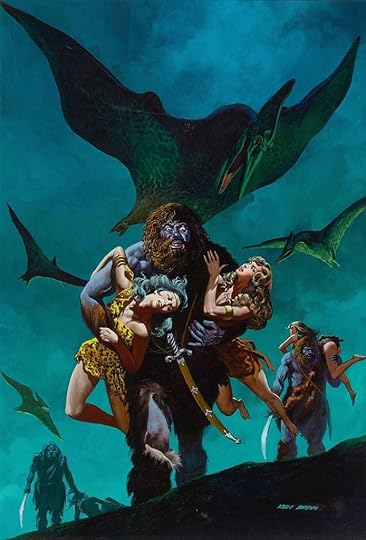
If so, that just goes to show that if you live in a fantasy world, you better get on killing evil now and kill them fast, before they run out altogether. Get going while the going's good.
(I have absolutely no relevant education or decrees. My only trait is overthinking.)

They're supposed to be the closest the human race has to demons from hell - you should be able to mow them down in dozens and not feel a twinge of regret. But I just can't. What's going on?
Reflecting on it, I'm pretty sure that Humankind: A Hopeful History is to blame. It taught me more about the essential kindness of our species, the love and compassion and hope that lies in the core of even the war and other atrocities we commit. More specifically, it pointed out that even the German soldiers in WW2 fought not for the Nazi ideology, nor against the French and Americans and other enemies, but simply for the love they felt to their fellow soldiers. And I now feel that they do it even in video games - such as Wolfenstein, which I've been playing - and that even though the game gives me no other choice but to kill or be killed, I feel pretty bad doing it now.
Does this mean I can no longer enjoy a lighthearted action romp, videogame shoot-'em-ups or Indiana Jones movies? That you'd have to either establish the enemy as humongous dickbags beyond the uniform they wear (show them gun down civilians, or at least sneer at the main hero), or take the whole thing as a black comedy? Or else be forced to accept the moral greys of things, and not being able to just feel good about an evil being defeated? Perhaps it's not so bad, anyway: all of those options would almost-invariably be deeper and more satisfying than just turning your brain off for a while.
Or you could instead use your brain in finding justification. Make it work.

Great many fantasy enthusiasts in these past couple years have started to reject the notion of evil races entirely. I've written on the subject before myself, both on the nature of evil, and on races such as orcs and their ilk: I like nonhuman races that are inherently alien to us, rather than just humans with some green paint and tusks; and I don't like to throw the word "evil" around lightly. If I am now to create a race that would qualify as most definitely evil, then it'd be more an exception than a rule for me, perhaps just a mental exercise rather than something I'd legitimately write about. But I'm thinking about it now, so here we go.
Looking back at the Humankind book, it's been made apparent that us humans are actually pretty nice folk when you get down to it. We don't like to kill each other; we instinctively jump to the help of one another when we're in trouble; we like to make friends and be social, and more often than not, try to do the right thing. The book calls it "Homo Puppy".
Creating an "evil" race would therefore be a simple matter: just remove this puppiness.
The members of this race don't particularly care to help anyone, even one another. They're not here to make friends and have no problem with killing. No moral compunctions get in the way of their selfish desires and actions. By the standards of humans, they could each of them be diagnosed as sociopaths.

How would they survive, then? By breeding like rabbits and growing fast. This will have the added benefit of them always coming in swarms, giving the heroic badass protagonist plenty to cut down in gory action scenes.
And how did they come to be in the first place? They don't seem the type to thrive by cooperation: rather, evolution (or some warrior-god) would have come up with them as an extreme illustration of the ideal of Survival of the Fittest: plenty of them are spat out into the world, but only the strongest, the toughest, or the most cunning of them ever survive to continue their bloodline. Strongly individualistic, looking to do things on their own and shun aid whenever possible: clever, self-sufficient, and very fast learners - those that weren't, would never make it to adulthood.
If any of them manage to make it out alive of your heroic massacre, you best beware: they'll learn from their mistakes and come back so much stronger and cleverer. Always confirm kills.

Yet for all of this... if you are the type that would like some moral greys and diplomacy in your stories, none of this still precludes making friends with a few. If met in peacetime, they might enjoy your company on an intellectual level, not rush into killing you - look for alternatives - even help you out in a pinch if there's something to it for them. Golden Rule is rooted less in compassion, far more in greater long-term payoff - they could most definitely understand it, and help people in return for assistance to themselves. Just that they'd be rather more mercenary about it.
But even so, the world would most assuredly be better off without them. So don't feel bad if you need to kill a bunch in a war. They're like double-nazis that way.
...Say. A lot of modern research suggests that neanderthals were quite smart and inventive individually, but had very little instinct in sharing their discoveries or helping each other out in general. The Humankind book above compared them to powerful modern computers, while humans were older and slower machines but with a working WiFi. That's got a lot in common with what I just went on about.
Were neanderthals the real-world orcs? Were they all killed off because they were a bunch of evil conquering psychos, possibly in the service of a dark lord?

If so, that just goes to show that if you live in a fantasy world, you better get on killing evil now and kill them fast, before they run out altogether. Get going while the going's good.
(I have absolutely no relevant education or decrees. My only trait is overthinking.)
Published on May 14, 2021 07:36
•
Tags:
evil, evil-races, fantasy, nazis, neanderthals, psychology, races, sociopathy
April 2, 2021
Power Fantasies - and easy solutions
A lot of people - and authors - like to wield great power and change the world and be really badass, and consequently you've got main characters who are practically perfect right from out of the gate, able to outfight and out-argue and out-fuck everybody else. These characters everyone can relate to, project to even. And it's rare that they have to work for that power: they just get it, or at least get it easier than most, talent being such a natural thing.
That was always the sticking point to me. Where it all comes from - or rather, the nowhere it comes from. Why do so many of us only want to have power, and not get it?

When it's just given to you right away, without a fuss, it's basically like just given new toys to a kid. Like going straight to the dessert without the yucky vegetable-heavy main course. Like using cheat codes in a video game. You get the reward without the struggle - and without the growth. And, consequently, this power never truly becomes a part of you: it's just a layer on top of you, a suit, never reaching into your depths, your heart and your soul.
And now that you've already been given the reward and can use it to blow stuff up and whatever, it's all the less likely you ever will grow to have earned it.
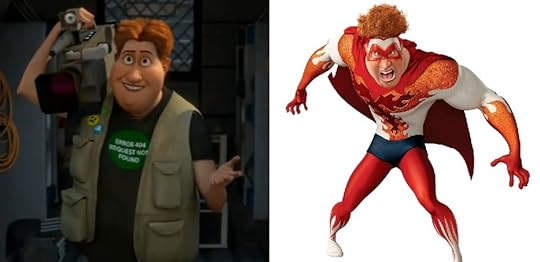
Look at this guy. Even if you haven't seen the movie, the above image should tell you all there is to know: some self-absorbed, insecure, all in all inadequate idiot just got a whole lot of power dropped on top of him, and of course he goes to run wild with it. Others beg and plead their vampire friend to turn them as well, so that they can run around in the night and be all badass - but on the inside they're still losers. A few do put their powers to a good use and become genuine heroes, but even in their cases it felt hollow to me. It was rare for the guy and the sudden power to be properly realized as the same thing, not separate.
But if a character just works out, naturally grows his body, learns some martial arts maybe, and spends half the story being kicked around by his enemies before he finally stands up - that's a lot better. You can bet whatever he gets will be a part of him from the get-go. It's the kind of stories I nearly always write myself. And, you know, it makes me feel like I too could do the same if I applied myself - a more realistic power fantasy, as well as a harsh lesson to why most of us always remain the way we are, and a reason to commend those that rise beyond anyway.
That was always the sticking point to me. Where it all comes from - or rather, the nowhere it comes from. Why do so many of us only want to have power, and not get it?

When it's just given to you right away, without a fuss, it's basically like just given new toys to a kid. Like going straight to the dessert without the yucky vegetable-heavy main course. Like using cheat codes in a video game. You get the reward without the struggle - and without the growth. And, consequently, this power never truly becomes a part of you: it's just a layer on top of you, a suit, never reaching into your depths, your heart and your soul.
And now that you've already been given the reward and can use it to blow stuff up and whatever, it's all the less likely you ever will grow to have earned it.

Look at this guy. Even if you haven't seen the movie, the above image should tell you all there is to know: some self-absorbed, insecure, all in all inadequate idiot just got a whole lot of power dropped on top of him, and of course he goes to run wild with it. Others beg and plead their vampire friend to turn them as well, so that they can run around in the night and be all badass - but on the inside they're still losers. A few do put their powers to a good use and become genuine heroes, but even in their cases it felt hollow to me. It was rare for the guy and the sudden power to be properly realized as the same thing, not separate.
But if a character just works out, naturally grows his body, learns some martial arts maybe, and spends half the story being kicked around by his enemies before he finally stands up - that's a lot better. You can bet whatever he gets will be a part of him from the get-go. It's the kind of stories I nearly always write myself. And, you know, it makes me feel like I too could do the same if I applied myself - a more realistic power fantasy, as well as a harsh lesson to why most of us always remain the way we are, and a reason to commend those that rise beyond anyway.
Published on April 02, 2021 00:56
•
Tags:
charles-atlas, growth, megamind, new-toys, power, power-fantasies, titan, vampires
March 5, 2021
Starving Saint - new story of a feudal animal kingdom, now on Amazon!
You might think of it as a Grimdark Zootopia. With a very nice cover, drawn by a friend.

Check it out here. If you can wait a couple days, you'll get it for free. Or you can buy it right away if the premise intrigues you or you want to support my work.

Check it out here. If you can wait a couple days, you'll get it for free. Or you can buy it right away if the premise intrigues you or you want to support my work.
Published on March 05, 2021 14:26
•
Tags:
amazon, cover-art, free-promotion, short-stories, starving-saint
January 19, 2021
Creating a morally complex villain, or, "My wife/child/dog died, but everyone else's loved ones can go suck it!"
It's very common nowadays to give your villain a bit more depth and motivation than simple lust for power. Something that even us, regular folks, might agree with - might even do the same he did, were we in his shoes. Or that's the idea.

I almost always end up hating it.
I get where you're coming from. You're trying to show that things aren't so black and white - that bad guys are human too, capable of love and compassion rather than just being a bunch of absolutely-evil punching-bags. And there's nothing wrong with wanting that. But this sort of a thing is so rarely thought fully through, and nearly always falls flat for three reasons.
First, they don't end up looking like any more three-dimensional human beings, at least for me. They just end up as absolute hypocritical myopic douchenuggets - even worse than how they would otherwise have been. Nothing else matters in the world except their pain. Again, nothing wrong with that as such - if it were ever addressed, and if it weren't so bloody common to the point of a cliché. How is it that none of these people ever stopped to think about what they were doing? How can every single one of them, even the otherwise smart diabolical masterminds, be so utterly narrow-sighted? It's just implausible.
Second, it so rarely has any real plot impact, apart from giving them a reason to do what they do. It all ends in a great big epic slugfest no matter what. They get beaten up and nobody learns anything. I feel like they could easily add a scene of some moral complexity and an epiphany where it actually hits them, or maybe the good guys get through them with a good talk, but, again, all too rare.

Thirdly... have you seen some of the people we have in the real world? Some of the politicians, the corporate executives, the serial killers? If we demand our fictional villains to be three-dimensional and on some level sympathetic, then does that not make them more sympathetic than the real people? Or do you suppose Jair Bolsonaro is torching down the Amazon because it killed his mother, and every time he sees a tree he feels a tug of immense grief in his chest, and requires some time to himself to cry it out?
Hell, maybe some of them do. But that raises another question, some food for thought: we really hate these people. We live in an age with an unprecedented and festering political rift, where anyone on the opposite side is vilified as an inhuman and unrepentant monster that deserves nothing but death. But what if they were just people, same as us, with their own feelings and secret motivations? Shouldn't that mean that we should stop hating them and instead try to build a better future together?
Or maybe they really are just a bunch of monsters, in which case, don't you think the fiction and stories should be allowed to portray such evil as well?
I don't know. Whichever one we choose, I think we can do way better than we do - be it in the real world, or with our entertainment.
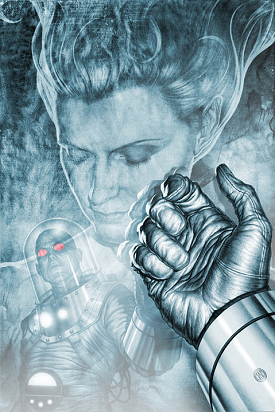

I almost always end up hating it.
I get where you're coming from. You're trying to show that things aren't so black and white - that bad guys are human too, capable of love and compassion rather than just being a bunch of absolutely-evil punching-bags. And there's nothing wrong with wanting that. But this sort of a thing is so rarely thought fully through, and nearly always falls flat for three reasons.
First, they don't end up looking like any more three-dimensional human beings, at least for me. They just end up as absolute hypocritical myopic douchenuggets - even worse than how they would otherwise have been. Nothing else matters in the world except their pain. Again, nothing wrong with that as such - if it were ever addressed, and if it weren't so bloody common to the point of a cliché. How is it that none of these people ever stopped to think about what they were doing? How can every single one of them, even the otherwise smart diabolical masterminds, be so utterly narrow-sighted? It's just implausible.
Second, it so rarely has any real plot impact, apart from giving them a reason to do what they do. It all ends in a great big epic slugfest no matter what. They get beaten up and nobody learns anything. I feel like they could easily add a scene of some moral complexity and an epiphany where it actually hits them, or maybe the good guys get through them with a good talk, but, again, all too rare.

Thirdly... have you seen some of the people we have in the real world? Some of the politicians, the corporate executives, the serial killers? If we demand our fictional villains to be three-dimensional and on some level sympathetic, then does that not make them more sympathetic than the real people? Or do you suppose Jair Bolsonaro is torching down the Amazon because it killed his mother, and every time he sees a tree he feels a tug of immense grief in his chest, and requires some time to himself to cry it out?
Hell, maybe some of them do. But that raises another question, some food for thought: we really hate these people. We live in an age with an unprecedented and festering political rift, where anyone on the opposite side is vilified as an inhuman and unrepentant monster that deserves nothing but death. But what if they were just people, same as us, with their own feelings and secret motivations? Shouldn't that mean that we should stop hating them and instead try to build a better future together?
Or maybe they really are just a bunch of monsters, in which case, don't you think the fiction and stories should be allowed to portray such evil as well?
I don't know. Whichever one we choose, I think we can do way better than we do - be it in the real world, or with our entertainment.

Published on January 19, 2021 13:32
•
Tags:
children, clichés, families, husbands, motivation, pets, rant, things-i-hate, villains, wives
January 17, 2021
From Chaos, Order
I've been reading early parts of Dragon Ball and One Piece lately, as well as the first couple books of Discworld. They all have something in common - they're all pretty crazy and wild and fast compared to what would come later. Things are way more in flux, you never quite know what happens next, there's not as much structure or narrative expectations yet. But there would be.
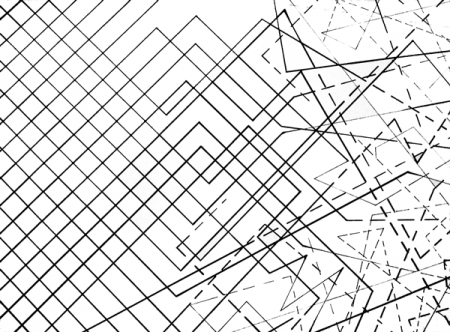
It's hardly unusual: few stories know what they want to be from the very start, and they tend to flounder about a bit and need to search for their own voice and style. From there on things begin to grow more coherent, as recurring characters and character motivations and personalities pop out of the primordial slime of creation, and as the setting itself begins to manifest and hold itself together. You get more involving storylines, more drama and tension, more call-backs, more structure, more order.
There's a lot to like in this kind of growth, and more often than not a story cannot survive if it does not take this step. But still, one often comes to miss those early wild days. The age of chaos and Sword & Sorcery in Discworld, when the realm was more dominated by strange magical landscapes and high adventure, before it was tamed and brought low by realism; the sheer quick pace of Dragon Ball, before the story demanded to slow things down for the sake of building things up; all the goofy sidetrip islands and their characters in One Piece, before the plot got kicked in such a high gear that we no longer could spare the time for such.
I hope it will never come to that for me. I hope to always keep a little bit of the essential Chaos in my works.


It's hardly unusual: few stories know what they want to be from the very start, and they tend to flounder about a bit and need to search for their own voice and style. From there on things begin to grow more coherent, as recurring characters and character motivations and personalities pop out of the primordial slime of creation, and as the setting itself begins to manifest and hold itself together. You get more involving storylines, more drama and tension, more call-backs, more structure, more order.
There's a lot to like in this kind of growth, and more often than not a story cannot survive if it does not take this step. But still, one often comes to miss those early wild days. The age of chaos and Sword & Sorcery in Discworld, when the realm was more dominated by strange magical landscapes and high adventure, before it was tamed and brought low by realism; the sheer quick pace of Dragon Ball, before the story demanded to slow things down for the sake of building things up; all the goofy sidetrip islands and their characters in One Piece, before the plot got kicked in such a high gear that we no longer could spare the time for such.
I hope it will never come to that for me. I hope to always keep a little bit of the essential Chaos in my works.

Published on January 17, 2021 07:59
•
Tags:
cerebus-syndrome, chaos, early-installment-weirdness, finding-your-own-voice, narrative-structure, order
December 18, 2020
Big reveals
I've got a couple revelations coming in the next story. One of the two is I think a genuine twist, one I've hopefully managed some subtle foreshadowing for... while the other's a smaller and more personal issue that may not have any impact to the plot at all, but it's also been heavily telegraphed and I feel like anyone could see it coming by now.

And I've read a few rather poor reveals lately that combine the worst of both worlds: foreshadowed like all hell, yet also a big twist. I've never seen that work. When it finally drops, you just kind of groan: finally we get the obvious out of the way!
Yet it can still have the exact same enormous impact in the world itself - the characters rarely have all the pieces of the puzzle, after all, like the reader does. To them it's still big news.
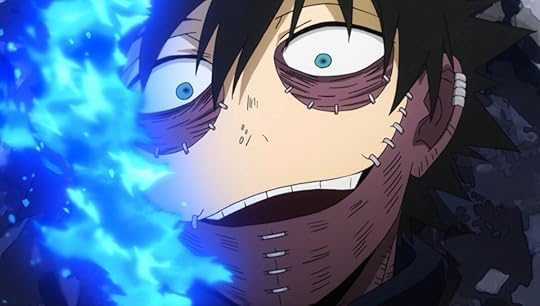
I guess there's three ways to still pull it off.
You could first reveal it to the reader without letting the characters themselves know: have it told to a smaller audience without making a big deal out of it, show a flashback, or something. This'll drop the pretense of it being any kind of a big deal from an audience standpoint, while still keeping the tension up in the world itself. Now we can all stop wondering about how bloody obvious it is, and begin dreading just what kind of an impact it has when the penny finally drops.
Could make it a red herring, of course. Heavily foreshadow one particular reveal, only to suddenly dunk the reader with a whole other one.out of bloody nowhere. Just need to be careful to have it still make sense in context, and perhaps to give a bit of subtler foreshadowing about it beforehand - don't just suddenly go off the rails because you realize we can see your big reveal coming, or else you'll make it even worse.
Finally, if it's actually not that crucial from the storytelling standpoint, you could just... not make the final reveal at all. Give the reader all the pieces of the puzzle, let them put it together themselves and draw their own conclusions, but otherwise leave it at that - bit of an extra background fluff to buff up the world and the characters and make it feel all the more alive. Or just have them discuss it at some point all casually, like it was obvious from the start (as it kind of was). Not everything has to be a big deal.
I think I'll do the last one with one of mine.
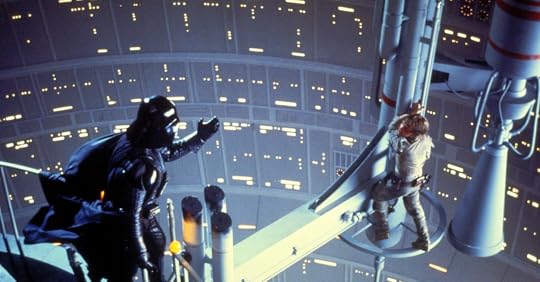

And I've read a few rather poor reveals lately that combine the worst of both worlds: foreshadowed like all hell, yet also a big twist. I've never seen that work. When it finally drops, you just kind of groan: finally we get the obvious out of the way!
Yet it can still have the exact same enormous impact in the world itself - the characters rarely have all the pieces of the puzzle, after all, like the reader does. To them it's still big news.

I guess there's three ways to still pull it off.
You could first reveal it to the reader without letting the characters themselves know: have it told to a smaller audience without making a big deal out of it, show a flashback, or something. This'll drop the pretense of it being any kind of a big deal from an audience standpoint, while still keeping the tension up in the world itself. Now we can all stop wondering about how bloody obvious it is, and begin dreading just what kind of an impact it has when the penny finally drops.
Could make it a red herring, of course. Heavily foreshadow one particular reveal, only to suddenly dunk the reader with a whole other one.out of bloody nowhere. Just need to be careful to have it still make sense in context, and perhaps to give a bit of subtler foreshadowing about it beforehand - don't just suddenly go off the rails because you realize we can see your big reveal coming, or else you'll make it even worse.
Finally, if it's actually not that crucial from the storytelling standpoint, you could just... not make the final reveal at all. Give the reader all the pieces of the puzzle, let them put it together themselves and draw their own conclusions, but otherwise leave it at that - bit of an extra background fluff to buff up the world and the characters and make it feel all the more alive. Or just have them discuss it at some point all casually, like it was obvious from the start (as it kind of was). Not everything has to be a big deal.
I think I'll do the last one with one of mine.

Published on December 18, 2020 04:54
•
Tags:
reveals, revelations, shocking-swerves, somebody-is-somebody-s-father, twists
December 16, 2020
Dark Age Of Art
When was the last time you enjoyed a book, or movie or video game or anything, that was truly groundbreaking and influential? Not just good and entertaining - there's been plenty of those - but something that left its mark to the history of arts and made certain none could ignore the footprint it left behind?

I don't recall us having had too many lately.
Maybe it's just me: maybe there's a bunch that I have not noticed because I don't follow the right circles. Or maybe these things can only be seen decades after the fact. Or maybe we no longer get any because we've capped our art, and can now only recycle the same old stuff.
But I've come to believe that it's far more sinister than this. I submit that the reason to the slump is that the modern day simply does not allow for innovation anymore.

We've come to live in this incredibly lame cyberpunk reality, where we're ruled by a few big megacorporations that keep on swallowing one another to become even greater and more bloated - and they're doing the best they can to make as much money as possible with as little risk as possible. And what art can you have without a bit of risk?
Marvel Cinematics Universe is pretty much the single most monetarily successful movie franchise ever, and sure, plenty of the movies in it are pretty entertaining and well-directed and -acted... but they're also about as far from groundbreaking as you can get, barely even staying in your head for much longer after you've seen them, let alone leaving real a mark in film history and culture. In the realm of comics, superheroes rule and continue to rule even though nothing has changed in their worlds for decades. Nothing in the realm of anime has approached the popularity of One Piece, and even that - for all the money it has made - has barely left a mark when compared to its predecessor Dragon Ball. The western cartoons have been running in circles for decades. Dungeons & Dragons has a death-grip on roleplaying games. Among video games we've just got Fortnite, Minecraft, Battlefields and what have you, the same old franchise zombies: The Last Of Us II recently racked in pretty much every reward there was - even making up some new ones just for itself - despite the enormous worker abuse and the fact that pretty much no player actually liked it.
And then books - the reason we're all here in the first place. "Groundbreaking" is a word that comes up a lot in advertisement, and then the book sells like a thousand copies and is forgotten by the next year by all but the most devoted fans. As detailed wrote in the previous post, the art of literature is particularly dead: even in the mainstream it barely sells, let alone being any good.
Then if you do come up with something genuinely new in any of these mediums, you'll be pretty much doomed into obscurity, no matter how good your work actually is: you'll impress a small group of people, but you lack the money and influence of these megacorporations, and your gem will be buried deep beneath the bland inoffensive porridge they promote.

I still think Undertale deserved to change everything about video games. It was the first and only time I've seen a game take full advantage of its medium - outside of brief gimmicks - blurring the line between the player and player character, and even more than that, offering genuinely impactful choices and immense depth of variations that follow from them. But of course such things could never be implemented in the AAA industry, obsessed with special-effect-laden interactive movies as it is. Maybe if it had come out a decade earlier it might have done something. Alas.
And it's the exact same story in every medium. Nothing has been allowed to change for ages. No risks have been taken, let alone paying off. There was a time when the media giants of today - Star Wars, Dragon Ball, superhero comics, Disney Animated Canon, video games as a whole - were precisely the sort of risks, ones that just happened to pay off enormously, all the more beautiful for it. We need more of those. We've forgotten where we came from.
I hope this won't last for long. I hope the people will grow tired of it all eventually and that the status quo will be broken. And I wish to be there to see it when it happens... and to take advantage of the new golden age once it does. Sword and Sorcery will rise again.

Would be nice if I knew what to do to be noticed, though. I feel like a drowning man unable to break the surface: I know what I must do but I cannot for the life of me tell which way to swim or how to swim at all.

I don't recall us having had too many lately.
Maybe it's just me: maybe there's a bunch that I have not noticed because I don't follow the right circles. Or maybe these things can only be seen decades after the fact. Or maybe we no longer get any because we've capped our art, and can now only recycle the same old stuff.
But I've come to believe that it's far more sinister than this. I submit that the reason to the slump is that the modern day simply does not allow for innovation anymore.

We've come to live in this incredibly lame cyberpunk reality, where we're ruled by a few big megacorporations that keep on swallowing one another to become even greater and more bloated - and they're doing the best they can to make as much money as possible with as little risk as possible. And what art can you have without a bit of risk?
Marvel Cinematics Universe is pretty much the single most monetarily successful movie franchise ever, and sure, plenty of the movies in it are pretty entertaining and well-directed and -acted... but they're also about as far from groundbreaking as you can get, barely even staying in your head for much longer after you've seen them, let alone leaving real a mark in film history and culture. In the realm of comics, superheroes rule and continue to rule even though nothing has changed in their worlds for decades. Nothing in the realm of anime has approached the popularity of One Piece, and even that - for all the money it has made - has barely left a mark when compared to its predecessor Dragon Ball. The western cartoons have been running in circles for decades. Dungeons & Dragons has a death-grip on roleplaying games. Among video games we've just got Fortnite, Minecraft, Battlefields and what have you, the same old franchise zombies: The Last Of Us II recently racked in pretty much every reward there was - even making up some new ones just for itself - despite the enormous worker abuse and the fact that pretty much no player actually liked it.
And then books - the reason we're all here in the first place. "Groundbreaking" is a word that comes up a lot in advertisement, and then the book sells like a thousand copies and is forgotten by the next year by all but the most devoted fans. As detailed wrote in the previous post, the art of literature is particularly dead: even in the mainstream it barely sells, let alone being any good.
Then if you do come up with something genuinely new in any of these mediums, you'll be pretty much doomed into obscurity, no matter how good your work actually is: you'll impress a small group of people, but you lack the money and influence of these megacorporations, and your gem will be buried deep beneath the bland inoffensive porridge they promote.

I still think Undertale deserved to change everything about video games. It was the first and only time I've seen a game take full advantage of its medium - outside of brief gimmicks - blurring the line between the player and player character, and even more than that, offering genuinely impactful choices and immense depth of variations that follow from them. But of course such things could never be implemented in the AAA industry, obsessed with special-effect-laden interactive movies as it is. Maybe if it had come out a decade earlier it might have done something. Alas.
And it's the exact same story in every medium. Nothing has been allowed to change for ages. No risks have been taken, let alone paying off. There was a time when the media giants of today - Star Wars, Dragon Ball, superhero comics, Disney Animated Canon, video games as a whole - were precisely the sort of risks, ones that just happened to pay off enormously, all the more beautiful for it. We need more of those. We've forgotten where we came from.
I hope this won't last for long. I hope the people will grow tired of it all eventually and that the status quo will be broken. And I wish to be there to see it when it happens... and to take advantage of the new golden age once it does. Sword and Sorcery will rise again.

Would be nice if I knew what to do to be noticed, though. I feel like a drowning man unable to break the surface: I know what I must do but I cannot for the life of me tell which way to swim or how to swim at all.
November 22, 2020
Wasted Years
I've been feeling like picking up drawing again - I haven't so much as picked up a pen in more than a decade. But I remember why I stopped, I know what I'm like, and I know there's precisely zero-percent chance I can keep it up. It's a passing whim that I'll have forgotten by tomorrow.
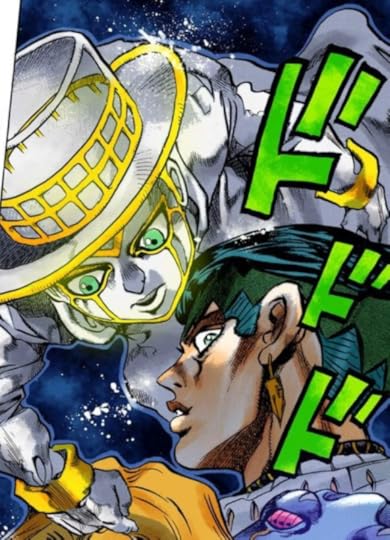
What hurts is knowing that if I had kept it up, I'd be pretty good by now. No way I'd suck at anything after some fifteen years of doing it. And I'm probably going to look back at this very moment another fifteen years from now, wishing I'd picked up drawing again after all and stuck with it. I wish I could get back all that wasted time - the years I spent doing nothing at all, just sitting there and staring into space - only this time with some clearly written instructions and a whole lot of reference books to make sure I wouldn't just waste it all over again. It would be enough time to learn not just to draw, but also - the true aspirations of my dreams - to animate.
I'm convinced that the very medium of writing is now dead. The modern world has no place for it. Two reasons.
One: anyone can write - just open up a new word file and get to typing - yet almost no one can distinguish good writing from bad. There's not a single publishing agent or short-story publication in existence that doesn't have to deal with dozens if not hundreds of daily contacts by hopefuls with high aspirations and no skill to back it up with - and when their stories are inevitably rejected, they can still self-publish it on their own. End result: thousands of stories out every single day, most of them never read by anyone, any nuggets of real merit drowning in an endless evergrowing ocean of garbage with no one ever learning to appreciate them.

Why would anyone with any measure of true determination and willpower stand for this? Why would they not struggle to break through their confines and learn something real, something more tangible, easier to appreciate, with less competition? Learn to draw at the very least, to make a comic book. Then you can learn to animate it and get to the business of cartooning. Or you could go ahead and do something entirely different, such as coding a video game or perhaps direct a movie. Join together with friends and form a whole company to cover each other's backs. That's the second reason writing is dead: we all have the tools for pushing to greater heights now, and no real excuse not to. If you don't struggle and improve, if you just do your own thing with no one to help you, you'll make it nowhere.
Sure, then your comic or cartoon may not be written or plotted out that well, since you didn't learn to write quite as much. But what does that matter? As I've said above, no one can tell the difference anyway! Follow the current trends and you'll be fine.
I beg you now - don't make the same mistake I did. Don't build yourself a future filled with regrets and remorse and ruined dreams that you can no longer change. Flee this accursed place. Learn something real.
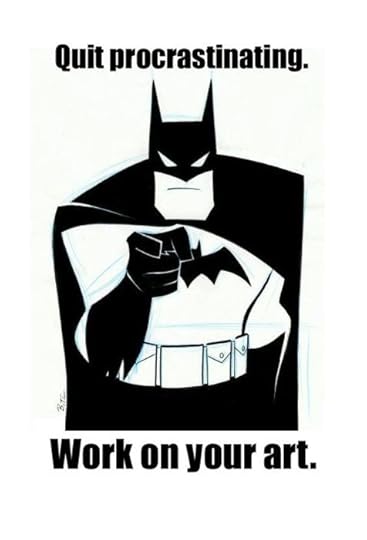
It's always easier to tell others to change, than it is to change yourself.

What hurts is knowing that if I had kept it up, I'd be pretty good by now. No way I'd suck at anything after some fifteen years of doing it. And I'm probably going to look back at this very moment another fifteen years from now, wishing I'd picked up drawing again after all and stuck with it. I wish I could get back all that wasted time - the years I spent doing nothing at all, just sitting there and staring into space - only this time with some clearly written instructions and a whole lot of reference books to make sure I wouldn't just waste it all over again. It would be enough time to learn not just to draw, but also - the true aspirations of my dreams - to animate.
I'm convinced that the very medium of writing is now dead. The modern world has no place for it. Two reasons.
One: anyone can write - just open up a new word file and get to typing - yet almost no one can distinguish good writing from bad. There's not a single publishing agent or short-story publication in existence that doesn't have to deal with dozens if not hundreds of daily contacts by hopefuls with high aspirations and no skill to back it up with - and when their stories are inevitably rejected, they can still self-publish it on their own. End result: thousands of stories out every single day, most of them never read by anyone, any nuggets of real merit drowning in an endless evergrowing ocean of garbage with no one ever learning to appreciate them.

Why would anyone with any measure of true determination and willpower stand for this? Why would they not struggle to break through their confines and learn something real, something more tangible, easier to appreciate, with less competition? Learn to draw at the very least, to make a comic book. Then you can learn to animate it and get to the business of cartooning. Or you could go ahead and do something entirely different, such as coding a video game or perhaps direct a movie. Join together with friends and form a whole company to cover each other's backs. That's the second reason writing is dead: we all have the tools for pushing to greater heights now, and no real excuse not to. If you don't struggle and improve, if you just do your own thing with no one to help you, you'll make it nowhere.
Sure, then your comic or cartoon may not be written or plotted out that well, since you didn't learn to write quite as much. But what does that matter? As I've said above, no one can tell the difference anyway! Follow the current trends and you'll be fine.
I beg you now - don't make the same mistake I did. Don't build yourself a future filled with regrets and remorse and ruined dreams that you can no longer change. Flee this accursed place. Learn something real.

It's always easier to tell others to change, than it is to change yourself.
Published on November 22, 2020 04:34
•
Tags:
drawing, regrets, writing, years-gone-by
Pankarp
Pages fallen out of Straggler's journal, and others.
Pages fallen out of Straggler's journal, and others.
...more
- Juho Pohjalainen's profile
- 352 followers



